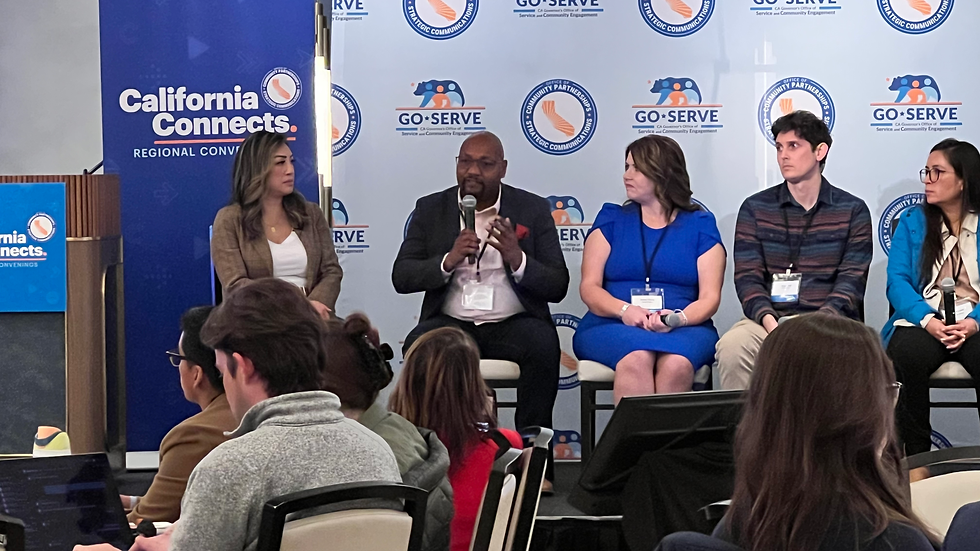“We have a crisis,” Says Gov. Newsom as state pumps 1.7B in homelessness fight
- INFO-MD Staff

- Jul 2, 2019
- 4 min read
Crisis is hitting Black Californians the hardest

Last week, Gov. Gavin Newsom signed a $214.8 billion state spending plan he and legislative leaders are calling “the Affordability Budget” for the 2019-20 fiscal year.
It took effect July 1 after the governor hashed out differences with the Assembly and Senate.
The budget includes $1.7 billion to fight homelessness, a problem that is affecting more African Americans per capita than any other group in the state. Of that money, $650 million will go to support county and city governments as well as regional homeless prevention agencies in their local efforts to decrease homelessness and increase their stock of affordable housing.
“Homelessness. What the hell is going on in our state?” Asked Gov Newsom at an event at the Capitol organized to mark the beginning of the new fiscal year.
“I agree with the critics. I agree with all of you,” said Gov. Newsom. “We have a crisis.”
The new funding represents the largest budget investment in affordable housing, homeless shelters and homelessness support services in the history of the state.
“We have come to agreement on a package of housing measures,” said a joint statement from the governor, Senate pro Tem Toni Atkins (D- San Diego) and Assembly Speaker Anthony Rendon (D-Lakewood).
“One that creates incentives,” their statement continued, “both sticks and carrots – to help spur housing production across this state.”
Large cities will receive a total of $275 million in grants, $190 million will go to counties and an additional $90 million is allocated to fund support and prevention programs.
The budget also provides $167 million for supportive housing primarily for mentally ill people and substance abusers.
Another $52 million is dedicated to fighting homelessness among college students. About 19 percent of Community College students in the state are homeless, according to a Temple University study.
“This homelessness issue is out of control,” Newsom said when he presented his budget last month. “Californians are outraged. They are disgusted.”
With fines that could run as high as $600,000, the governor also plans to begin stronger enforcement of state laws that require county and city governments to plan for new growth.
California, with its Gross Domestic Product of $2.7 trillion, boasts the largest economy in the United States. But the state’s 130,000 homeless population is the largest in the country, too, accounting for nearly 25 percent of all people without a permanent residence in the United States. The state also has the highest rate of unsheltered homeless people (about 75 percent) and it has seen the sharpest increase in homelessness in the country over the last 4 years.
In the Los Angeles area, the homelessness problem is dire. There are about 59,000 homeless people in Los Angeles County. That number represents a spike of about 16 percent over last year’s total.
For African Americans, the numbers are worse. Although the total Black population is only about 9 percent, African Americans make up about 36 percent of L.A.’s homeless people.
In other Census tracts of the state where there are clusters of African-American residents – Alameda County and San Bernardino County, for example – the rates of homelessness for Blacks is also disproportionate. Take Alameda County, where Oakland is the largest city, African Americans make up about 28 percent of the population, but they account for nearly 70 percent of the county’s homeless people. And down south in San Bernardino County, African Americans make up about 9 percent of the county’s residents and comprise about 15 percent of the homeless population.
In San Francisco, where Blacks only make up about 7 percent of the population, they account for about 36 percent of the city’s homeless.
A number of factors contribute to the high numbers of homeless Blacks in California. According to the Los Angeles Housing Services Authority (LAHSA), they include failing schools, a broken foster care system, high rents, the scarcity of available rental properties, criminal records, racial discrimination and more.
Personal setbacks like the loss of a job, a divorce, illness, etc., may drive families or individuals into homelessness. In fact, less than 50 percent of California’s homeless population are mentally ill or substance abusers. The majority, dubbed the “economically homeless,” fell upon hard times, missed a series of rent or mortgage payments and lost their housing.
Also, more than half of California’s renters are considered “rent burdened,” meaning they spend more than 30 percent of their income to keep a roof over their heads, according to a UC Berkeley report.
“We have millions of Californians that are one rent increase away from being forced out of their homes,” said Assemblymember David Chiu (D-San Francisco).
Chiu recently sponsored a bill, AB 1482, to limit rent increases to 7 percent. Lawmakers are expected to vote on it by the middle of September.
Assemblymembers Tim Grayson (D-Concord) and Rob Bonta (D-Alameda) introduced another bill, AB 1481, with stronger protections for tenants. That legislation did not make it out of the Assembly. Landlord groups and the California Association of Realtors spent more than $80 million on lobbying fighting against it.
In 2018, Assemblymember Mike Gipson (D-Los Angeles), a member of the Legislative Black Caucus, successfully sponsored a set of three bills called the “Vulnerable Youth Empowerment Package.” Together, the provisions in them are intended to prevent homelessness among foster youth who make up a little over 10 percent of the state’s unhoused population.
California’s large homeless population puts the state at risk of being undercounted in the 2020 Census. That could lead to the loss of hundreds of millions of dollars in federal funding for programs like Head Start, Title 1, SNAP, Medicaid and more. A majority of the Golden state’s homeless people live in tracts of the state where those programs are needed the most.








Comments